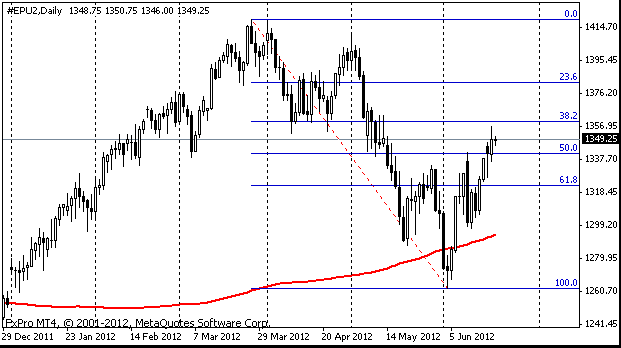EUR/usd
The word “bailout” presupposes some aid, easing of the lot of the rescued. Earlier money allocations to the rescued Greece, Ireland, Portugal and Spain led to growth of the single currency, albeit the short-term one sometimes. Yet it is different with Cyprus, “rescued” last Saturday. eurusd dropped by 1.5% after the EU's decision to impose a one-off 9.9% levy on accounts with more than €100K. Smaller deposits will be taxed at 6.75%. Altogether, it should bring €5.8bln to the government of Cyprus. The EU will allocate another 10bln. Earlier it was calculated that Cyprus would need about 17bln, but the IMF considered it unreal for the country, since it wouldn't be able to service such a huge debt. It should have been expected judging by the earlier messages about reduction of the bailout amount for Cyprus. But then that news was taken positively as no one supposed such an outcome for investors. The single currency has fallen from Friday's close of 1.3060 to 1.29 by now. The news is bad not only because it undermines confidence in the EU banks and their deposit insurance scheme, but also because of the bad precedent which has been created and can be now employed in other cases. This news is able to cause further selling of the euro, which will entail the outflow of deposits from the euro zone back to the safe havens. The nearest target is 1.2865, which if broken will open the way to new lows.

GBP/USD
Investors again remembered the protective function, which the sterling performs at the time of a storm in the banking sector of Mainland Europe. The British currency is keeping a tight grip on 1.51. The euro/pound has hit a monthly high. Quite likely, gbpusd will continue to depreciate under the burden of the US currency, but the dynamics of the pair will be less stronger than that of the euro coupled with the dollar.

USD/JPY
usdjpy has been surely going down since the end of the previous week. Then the major cause of the decline was weakness of the dollar and now – flight to the liquid currencies of ‘the safe havens'. Investors are pulling their funds out of the EU currencies. The main risk for the bears now is posed by Kuroda's official assumption of the office. It takes place tomorrow and it's better to be ready for the extra meeting of the monetary policy committee.

US stock futures tumbled down at the opening of this week's trades. The S&P 500 index futures fell down to 1530, though its high was 1558.5. Now it's hard to say whether it is the beginning of a big reversal or a retracement after hitting the highs. It will largely affect the results of the Fed's meeting, which will be released tomorrow.
